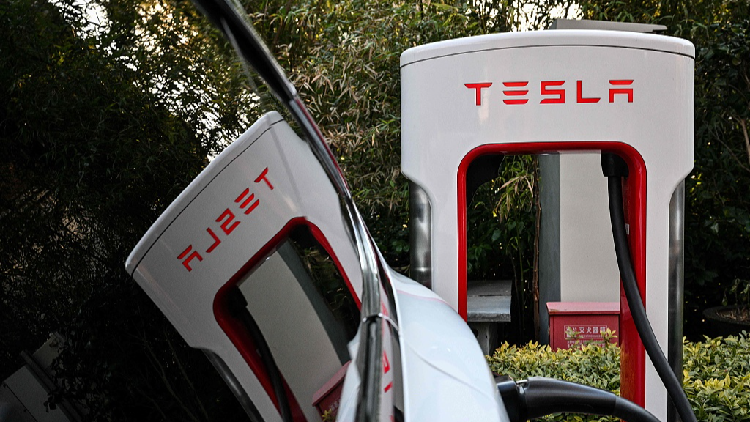Tesla Set to Introduce Select FSD Capabilities in China
Tesla is set to introduce a limited rollout of its Full Self-Driving (FSD) features in China. This move marks a significant expansion of Tesla's autonomous driving capabilities in one of the world's largest automotive markets.

However, the availability of these features is constrained due to a lack of sufficient data training on the unique characteristics of Chinese roads and traffic regulations, according to a source familiar with the issue, as reported by Reuters.
While Full Self-Driving (FSD) is a suite of driving-assistance technologies designed with generative artificial intelligence to handle more complex traffic situations, autopilot primarily deals with more standard driving conditions.
Elon Musk aims to launch full autopilot and FSD systems in China but has acknowledged that technological limitations are complicating these efforts. Consequently, the company has delayed its original goal of deploying these systems by the end of 2024 to this year.
Delays in the introduction of a complete FSD system in China have positioned Tesla behind local competitors, including Huawei, Xiaomi, and BYD, which have released numerous EVs equipped with sophisticated smart-driving technology capable of navigating the intricacies of urban traffic in China.
Tesla charges nearly $9,000 for access to a limited iteration of its FSD software, applicable to its EVs starting from $32,000. In contrast, Xiaomi’s SU7 electric sedan, priced from $29,700, has consistently outsold Tesla's Model 3 in China and provides an enhanced smart-driving system, including city navigation, at no extra cost.
Earlier this month, BYD began offering advanced autonomous-driving features across most of its vehicle lineup for free, with models available from as low as $9,555.
The functionality of Tesla's autopilot update aligns with BYD's mid-tier variant of its God's Eye system, which utilizes sophisticated computing and lidar technology to create 3D representations of a vehicle's surroundings, aiding in navigation around obstacles. This system is available in its premium Denza brand, along with high-end models from its Dynasty and Ocean series.
Musk indicated that Tesla is pursuing regulatory approval from Beijing to fully deploy FSD in the country; however, current Chinese regulations only mandate that automakers register any level-two updates with the industry ministry. Both autopilot and FSD are classified as level-two autonomous driving technologies, which, under Chinese law, necessitate driver oversight and intervention when required.
On another front, Chinese automakers are rapidly advancing their in-car experiences and smart driving capabilities, particularly following the launch of the DeepSeek language model. In early February, several Chinese manufacturers, including Geely Auto, IM Motors, Leapmotor, and GAC Group, announced deep collaborations with DeepSeek's AI model to enhance intelligent driving development.
Leapmotor was notably the first among new energy vehicle startups to implement DeepSeek, following Geely's earlier announcement, which established Geely as the first automaker to officially partner with the model.
These collaborations are designed to improve functionalities such as multi-turn voice assistant commands, text-to-image generation, and active learning. By utilizing advanced central domain controllers equipped with powerful AI chips and optimized computing capabilities, the partnerships aim to refine cockpit interaction logic, improve natural language comprehension, and accelerate personalized service responses. This initiative promises a seamless and efficient experience across various applications, including intelligent cockpits and human-machine interactions.
To date, more than a dozen automakers and brands—such as BYD, Geely Auto, Voyah, Baojun, Dongfeng Motor, IM Motors, Leapmotor, and GAC Group—have announced extensive integrations with DeepSeek's AI model.
Camille Lefevre for TROIB News
Discover more Science and Technology news updates in TROIB Sci-Tech












